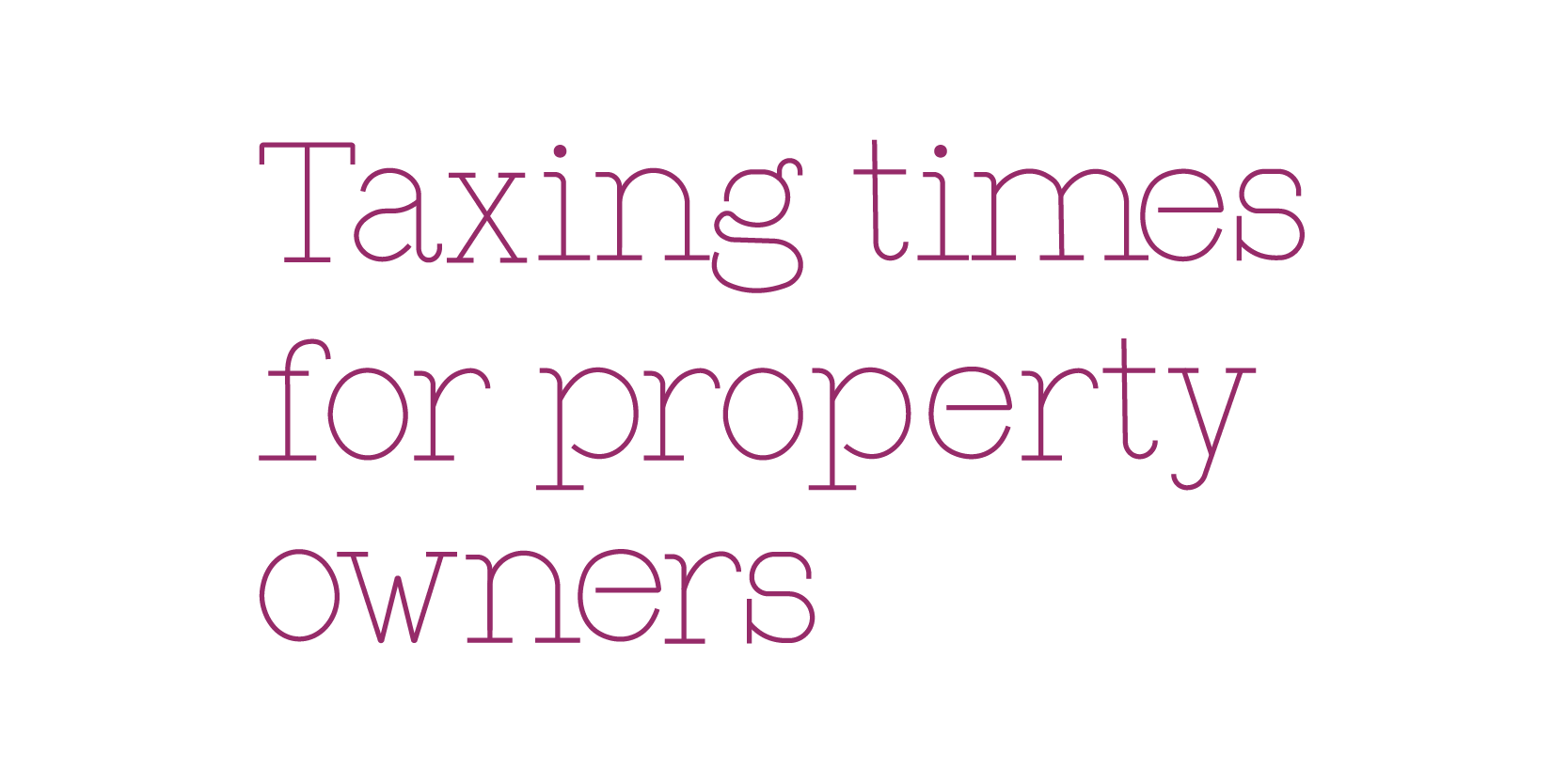
Taxing times for property owners
It’s no secret tax deductions, in addition to capital gains, remain a carrot for property investors. But tax rules have tightened, and the landscape is always shifting, making it hard for the average person to keep up with what’s claimable, and what’s not.
With June 30 creeping up, Haven looks at tax impacts for property owners and how to maximise returns.
Property purchase costs
Expenses you incur when buying an investment property – i.e. the actual property cost, stamp duty, legal fees and inspections – can’t be claimed immediately as tax deductions1. But they can be added to the purchase price when you eventually sell to reduce your capital gains tax (CGT). If, for example, you pay $400,000 for a property, plus $16,000 in stamp duty2 and $1,500 for conveyancing, your cost base increases to $417,500, reducing the profits that attracts CGT3. Similarly, you can deduct from your sale price any costs associated with the property’s disposal, including agent and advertising fees.
Borrowing expenses
To many investors’ surprise you also can’t claim borrowing costs straight up in that income year, unless they are under $100, which is unusual. Borrowing expenses include loan establishment fees, title search fees, lender valuation fees and mortgage fees. Instead, these costs must be claimed over five years.
Depreciation
When you spend more than $300 on a permanent fixture or fitting for your investment property, such as a dishwasher, air-conditioning or carpet, the ATO requires you to spread the cost of the capital item across the item’s ‘effective life’. In other words, the length of time it is considered usable. As the value of the item diminishes over time, this type of claim is known as depreciation. Rules around depreciation have tightened recently. Previously you could claim some items that came with the property. Now, you can only claim on capital items you buy yourself.
Capital gains
When you make more than $30,000 profit on an investment property you must pay capital gains tax. CGT is applied at the same rate as your income tax rate, so if your personal tax rate is 25 per cent, so too is your CGT rate. However, if you hold a property for more than 12 months, the ATO will give you a 50 per cent discount on CGT.
Some investors will aim to sell a property at the beginning of the financial year, so they have as long as possible until they have to pay CGT come tax time. Other investors may try to avoid paying CGT by purchasing a property through their self-managed super fund, paying the loan off through super contributions and selling once they have retired4. Make sure you speak with your financial advisor or tax specialist to understand the implications of this strategy for your situation.
Capital gains tax also doesn’t apply to the sale of your own home, unless you have rented part of it out, or used it for a home business and claimed deductions against it5. Property purchased before 20 September 1985 is also exempt from CGT6.
Property inspections
Up until 30 June 2017, investors could claim travel costs associated with maintaining their property, including two inspections a year. The ATO has now closed that window, denying travel deductions for maintenance, inspections, attending body corporate meetings or collecting rent. If your investment property is far afield, you might come up shorter on your tax return this financial year.
Working from home
With nearly a third of us now working regularly from home7, chances are you can claim some deductions on your place of residence, even if you don’t run a home-based business. The ATO will allow you to claim equipment, such as printers and computers, and a portion of energy and internet costs if you work at home8. If you have a separate, dedicated home office you may also be able to claim depreciation on fixed fittings, such as flooring and lights. Just note, working from home does not entitle you to claim any part of your rent, mortgage or home insurance, unless you operate a home business.
Expert advice
With tax rules changing year on year, it’s important you speak with your accountant or financial adviser to find out what you can and can’t claim in your situation.
Tax: the information in this article does not constitute advice. As taxation legislation is complex we recommend you speak with your financial advisor, tax advisor or contact the ATO for further details and expert advice regarding your personal circumstances.
1 www.yourmortgage.com.au/home-loan-guide/what-tax-deductions-are-available-for-property-owners/246761/
2 Fictitious figure only due to state/territory stamp duty variances
3 https://propertyupdate.com.au/understanding-capital-gains-tax/
4 www.finder.com.au/capital-gains-tax-selling-property
5 https://propertyupdate.com.au/understanding-capital-gains-tax/
6 www.finder.com.au/capital-gains-tax-selling-property
7 www.smh.com.au/business/careers/one-in-three-australian-workers-now-regularly-work-from-home-20160921-grl3a1.html
8 www.yourmortgage.com.au/home-loan-guide/what-tax-deductions-are-available-for-property-owners/246761/
Any advice contained in this article is of a general nature only and does not take into account the objectives, financial situation or needs of any particular person. Therefore, before making any decision, you should consider the appropriateness of the advice with regard to those matters. Information in this article is correct as of the date of publication and is subject to change.
